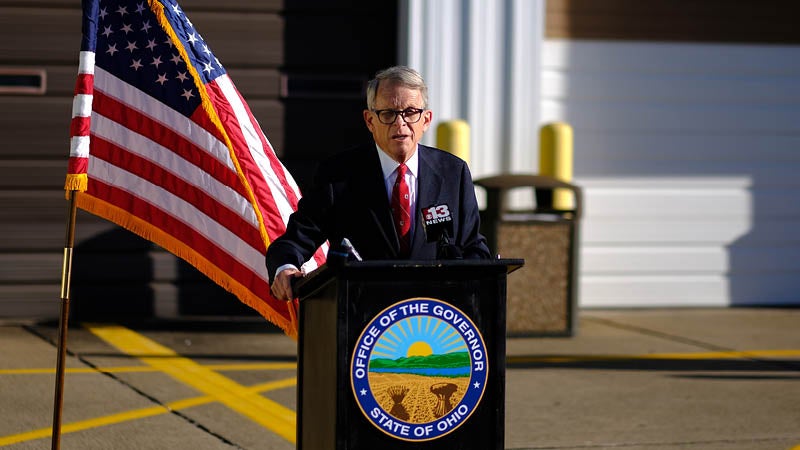Program launched to eliminate backlogs, decrease testing turnaround time
Published 1:59 am Tuesday, May 3, 2022
CLEVELAND — Ohio Governor Mike DeWine today announced a new plan to eliminate evidence-processing backlogs and increase the speed at which criminal evidence is analyzed in crime laboratories across the state.
Crime lab efficiency grant map
As part of Governor DeWine’s new Ohio Crime Lab Efficiency Program, Ohio’s 14 certified crime laboratories will receive a combined total of $10 million to reduce and eliminate backlogs, increase overall lab efficiency, and decrease evidence processing time.
The crime laboratory grants are part of Governor DeWine’s overall strategy to support Ohio’s criminal justice community in their work to solve crimes, hold criminals responsible, secure justice for victims, and keep residents safe.
“Ohio’s forensic scientists and chemists are oftentimes unsung heroes working behind the scenes on criminal investigations, but their work is truly critical in helping law enforcement solve cases and protect citizens,” said Governor DeWine. “As we continue to help law enforcement officers with new tools to fight crime, it’s just as important to support those in our crime labs with new tools to analyze evidence. The awards we’re announcing today will help scientists do their jobs better and more efficiently to get crime-solving test results back into the hands of investigators sooner and violent criminals off the streets faster.”
Awarded funds will be used to meet the individual needs expressed by each laboratory such as new equipment and increased staffing to eliminate backlogs of DNA, firearm, trace, fingerprint, and drug evidence. Funds will also be used to decrease the turnaround time of forensic toxicology and forensic pathology test results and to proactively prevent future backlogs associated with nationwide pandemic-induced increases in violent crime.
The Ohio Attorney General’s Office will receive a $2.75 million grant for its three crime laboratories in London, Richfield, and Bowling Green for overtime costs associated with backlog reduction, new technology, and to outsource some chemistry cases.
The Ohio Division of the State Fire Marshal Forensic Lab will receive a $250,000 grant for new forensic computers with more processing power for digital evidence to help lower turnaround time and eliminate digital evidence backlogs.
The Ohio State Highway Patrol Crime Laboratory will receive a $1.25 million grant to replace drug-testing equipment that has reached the end of its useful life and to outsource some chemistry cases to reduce the current backlog.
Ohio’s crime laboratories attribute current evidence backlogs to workforce issues caused by COVID-19 and the nationwide increase in violent crime also caused by the pandemic. The grants are funded with American Rescue Plan Act funds dedicated by Governor DeWine and the Ohio General Assembly to state and local first-responder agencies to counter increases in violent crime and to mitigate impacts on staffing levels and first-responder wellness caused by the COVID-19 pandemic.
Other initiatives recently launched by Governor DeWine to counter pandemic-induced increases in violent crime include the new Ohio Ballistics Testing Initiative, which increases local law enforcement’s access to the National Integrated Ballistic Information Network, and the launch of the new Ohio Violent Crime Reduction Grant Program to fund local strategies to reduce crime in local communities.
Since taking office in 2019, Governor DeWine has launched several initiatives to help law enforcement in their work to protect the public and solve crimes. New statewide offices include the Ohio Narcotics Intelligence Center, Ohio School Safety Center, Ohio Office of Law Enforcement Recruitment, and the Ohio Office of First Responder Wellness. Governor DeWine, in partnership with the Ohio General Assembly, also secured funding to help local law enforcement agencies extradite wanted offenders, enter warrants into state and federal databases, pay for critical training, and more.






